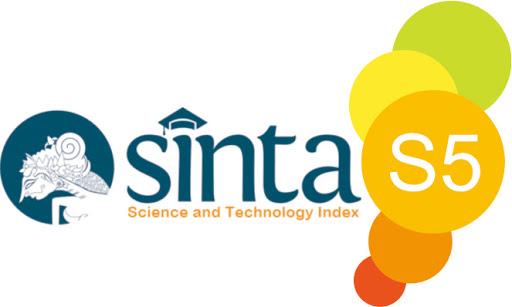FERMENTASI PERIKANAN TRADISIONAL TERASI REBON (Acetes sp.) PADA UMKM FAMILI DAN POKLAHSAR CAHAYA JAYA KECAMATAN MUNCAR, BANYUWANGI
DOI:
https://doi.org/10.36526/jl.v5i1.2557Keywords:
Fermentation, Traditional fishery, TerasiAbstract
Terasi is a form of processed rebon shrimp which is widely circulating in Indonesia. Terasi is one of product diversifications resulting from fermentation based on trash fish and rebon shrimp with the addition of salt or other additives in the shape of paste or powder with a distinctive terasi flavor. The purpose of salt addition is to obtain certain condition allow halotolerant microorganisms to react to produce certain food products with unique characteristics such as terasi products. This research used a descriptive method with data collection techniques through primary and secondary data. Data collection was carried out by observation, interviews, active participation, and literature study. The research results at MSME Family and MSME Poklahsar Cahaya Jaya, Muncar District, Banyuwangi Regency among others the raw material used in product processing is rebon shrimp (Acetes sp.) obtained from Banyuwangi Muncar coastal waters. Rebon shrimp mixed with 20-25% salt of the total fish weight. Furthermore, the fermentation process was carried out for some time and dried in the sun and the final product will be packaged with PE plastic for the UMKM Famili and plastic jar packaging for the UMKM Poklahsar Cahaya Jaya, Muncar District. Resulted terasi has a distinctive flavor of terasi, dry characteristics with the shape of solids in the MSME Famili and has dry characteristics in the form of powder and granules in the MSME Poklahsar Cahaya Jaya, has a moisture content below 45%, and a salt content of 15-20%.
References
Anggo, A.D.; Fronthea, S.; Widodo, F.M.; Laras, R. (2014). Mutu organoleptik dan kimiawi terasi udang rebon dengan kadar garam berbeda dan lama fermentasi. Jurnal Pengolahan Hasil Perikanan Indonesia. 17(1) : 53-59.
Lobo, Y.A.; Kencana, P.K.D.; Arda G. (2014). Studi Pengaruh Jenis Kemasan dan Ketebalan Plastik Terhadap Karakteristik Mutu Rebung Bambu Tabahn (Gigantochloa nigrociliata KURZ) Kering. Jurnal BETA (Biosistem dan Teknik Pertanian). Vol. 2(1) : 1-10
Naiu, A.S., Koniyo, Y., Nursinar, S. & Kasim, F. (2018). Penanganan & Pengolahan Hasil Perikanan. CV. Athra Samudra : Gorontalo.
Sari, M.P.; Palupi, I.R.; Jamil, M.D. (2016). Persepsi dan Sikap Konsumen Terhadap Penerapan Traffic Light Card pada Produk Pangan Kemasan. The Journal of Nutrition and Food Research. Vol. 39(1) : 27-36.
Yusuf, N., Hamzah, S.N., Lamadi, A., & Kadim, M.K. (2018). Diversifikasi Pengembangan Produk Hasil Perikanan. CV. Athra Samudra : Gorontalo.
Downloads
Published
How to Cite
Issue
Section
License
Copyright (c) 2024
This work is licensed under a Creative Commons Attribution-ShareAlike 4.0 International License.











